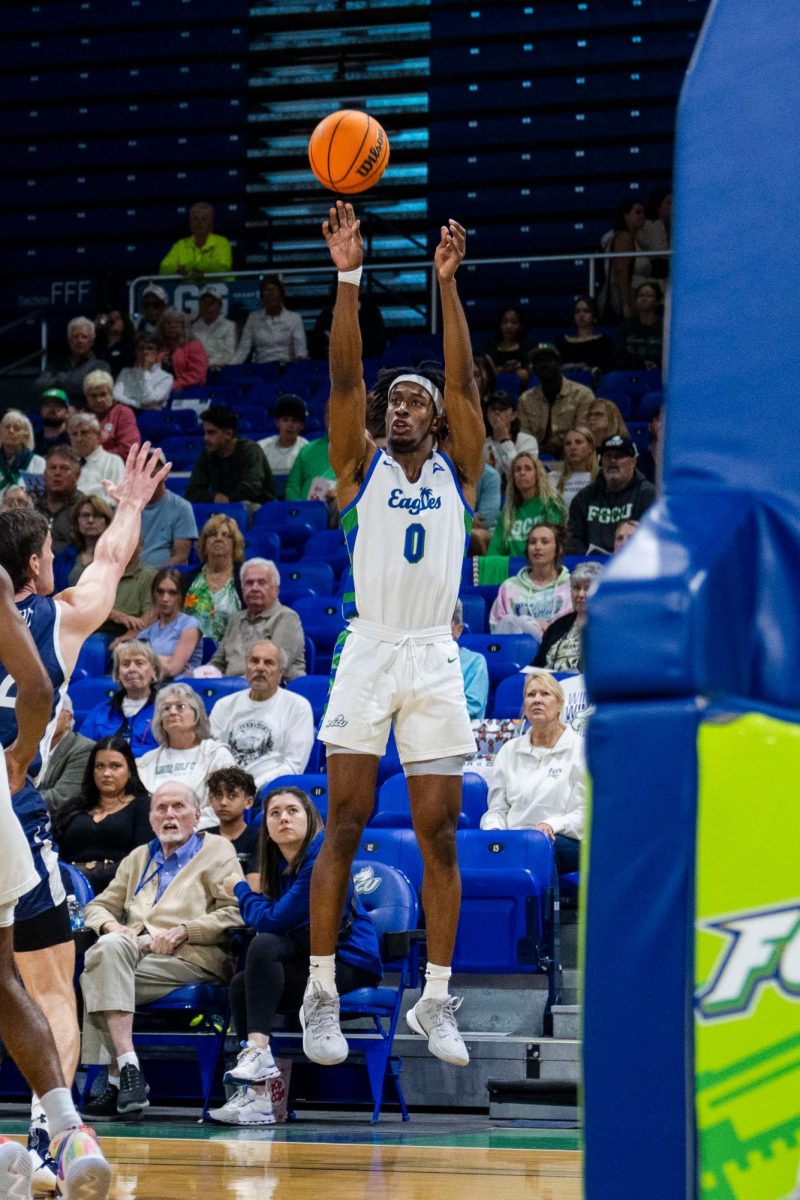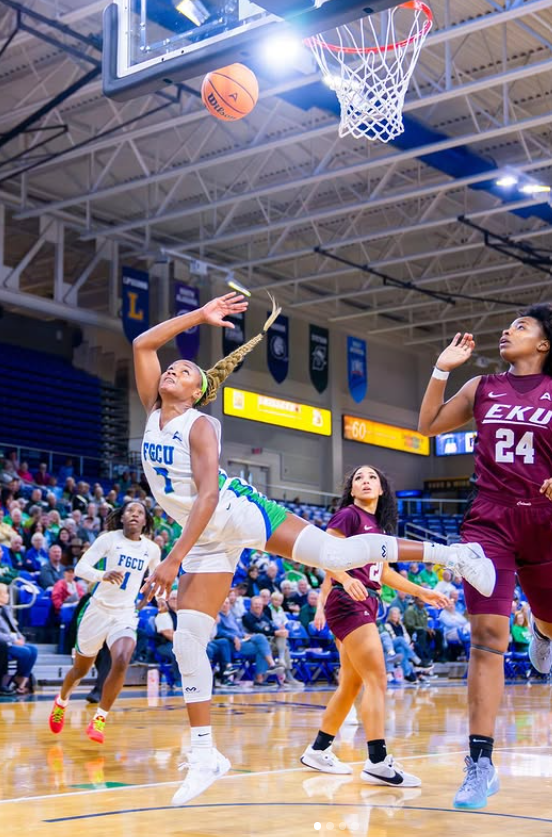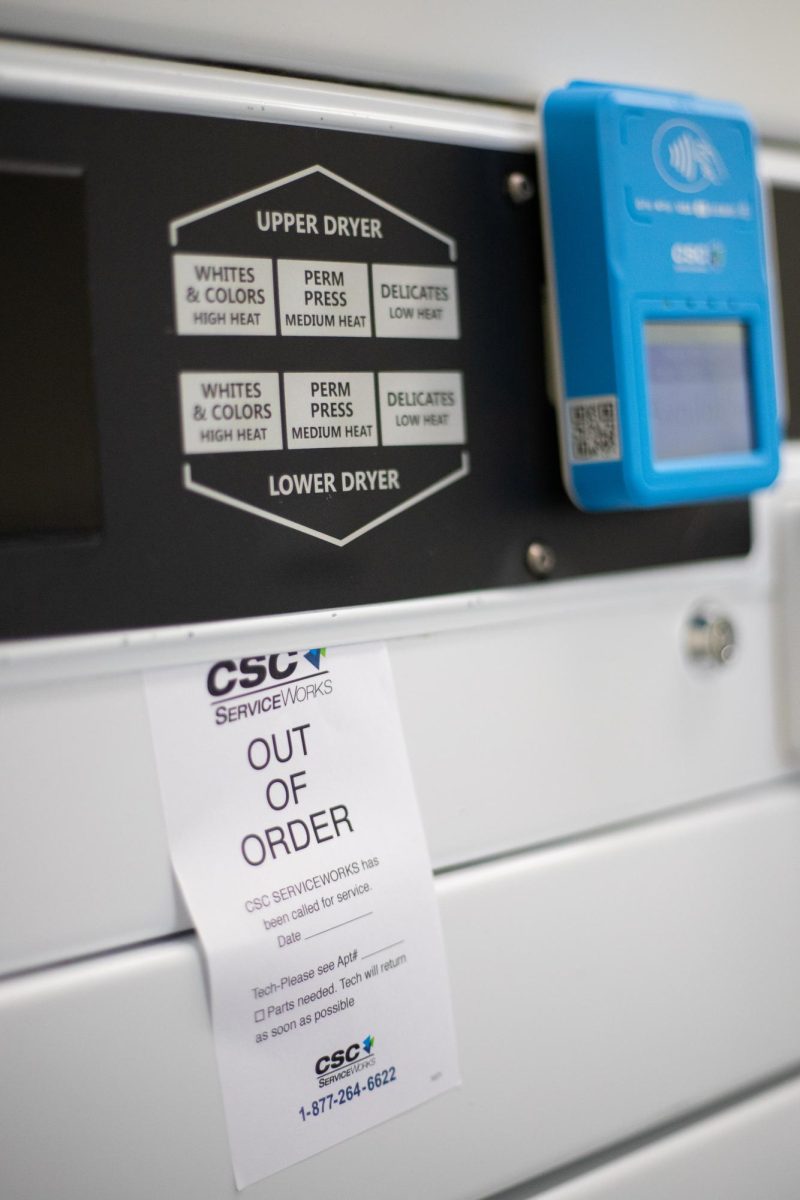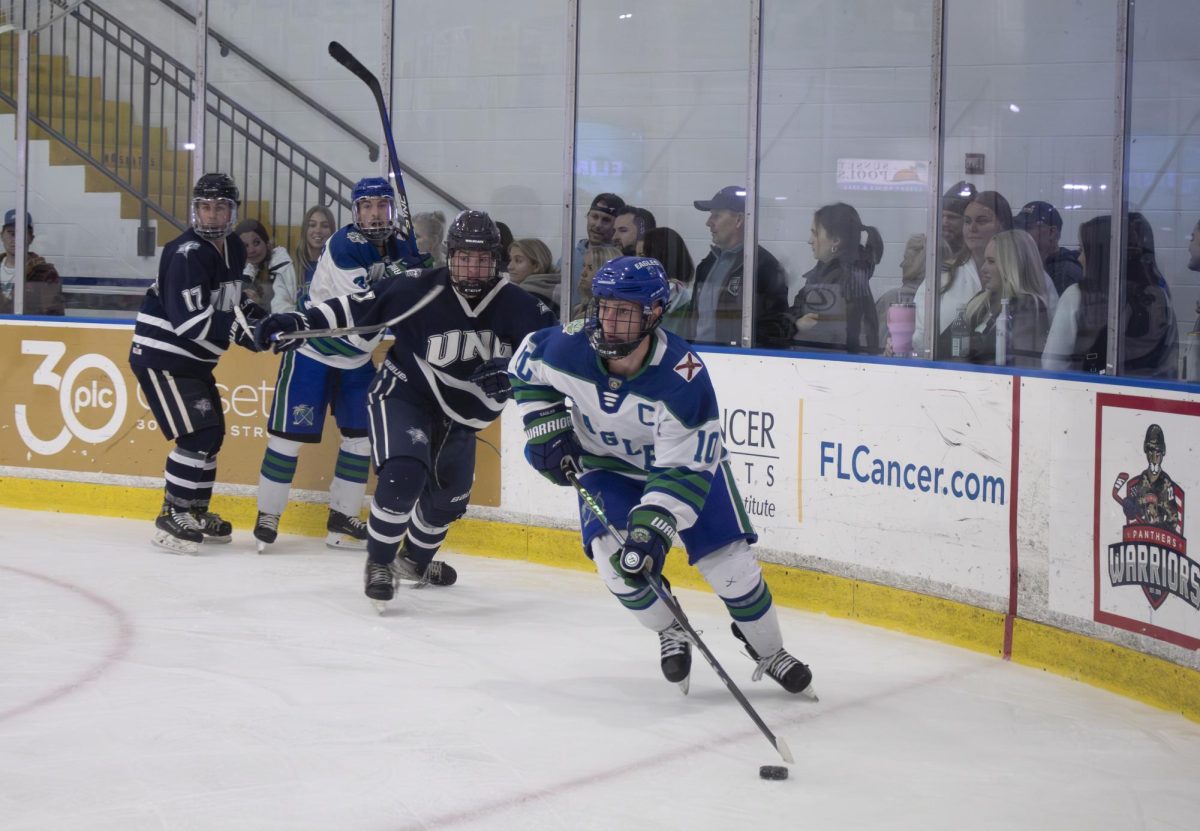Athletes at FGCU earned a 3.3 cumulative GPA in the spring semester of 2015, compared to a 3.1 for the FGCU undergraduate student body, making it a record tying semester. Seventy percent of FGCU student athletes earned at least a 3.0 in the spring semester.
The NCAA
The NCAA requires a minimum GPA of its athletes. Student athletes must achieve 90 percent of the institution’s minimum overall grade-point average necessary to graduate (1.8) by the beginning of year two, 95 percent of the minimum GPA (1.9) by year three and 100 percent (2.0) by year four.
The 3.33 cumulative GPA for the spring tied the all-time mark set in the fall of 2013.
“We stress the importance of having a minimum GPA of 3.0,” Kelly Brok, the director of the Student-Athlete Learning Center, said.
“Our coaches and administrators are very supportive of the academic pursuits of the student-athletes. Coaches stress the importance of academic success early in the recruiting process and review weekly reports to keep them abreast of the academic standing of their students. When traveling, many coaches conduct team study halls if time permits or create time for individual learning. Our office helps student athletes plan in advance before they miss a class for travel. The student athletes work with the faculty to turn in work early or make alternative arrangements,” said Brok.
Student-Athlete Learning Center
The Student-Athlete Learning Center is a joint program between the Office of Undergraduate Studies and the FGCU Department of Intercollegiate Athletics. This program is there to “promote the academic success of the studentathlete population by providing programs and services that assist students in in becoming skilled, independent learners who achieve their academic goals.”
The Athletics Department provides free services such as Internet, a monitored study hall with set study hours, group and individual tutoring by paid tutors, monitored academic plans, laptops for travel, degree evaluations, assignment printing, early class registration and eligibility assessments to each athlete.
“Freshman student-athletes are typically required to complete six to ten hours a week of study hall,” Brok said.
“We want to leave FGCU in a timely fashion, with a degree in hand more well rounded as an individual than when you arrived on campus, and qualified for potential suitors as one who is prepared to embark on a successful career in your chosen profession,” Ken Kavanagh said in the 2015-16 Student-Athlete handbook.
The student athletes at FGCU have maintained a higher GPA than the student body for twelve semesters in a row. The Eagles claimed the 2014-15 A-Sun All-Sports Championship for the second time in three years.
Individually, 19 of FGCU’s student-athletes finished with a 4.0 GPA for the semester, representing almost 10 percent of the entire student athlete body with perfect grades for the term. Through another successful season, 89 percent of FGCU’s swimmers and divers achieved the mark required to be an A-Sun Academic Champion, increasing the total figure to 173 student athletes and 74 percent of FGCU’s overall student athlete population.
Among the overall population of 233 student athletes, 102 (44 percent) achieved a 3.5 or higher term GPA.
Leading yet another extremely impressive term was the women’s golf team as the eight-member squad posted an astonishing 3.81 GPA for the semester.
Student athletes surpassed the GPA of the average student at FGCU “One of the biggest reasons for the higher standards is the level of accountability. When a student athlete does poorly on an assignment, their athletic academic coordinator will know that week when they meet with the student. The coordinator will triage the situation and assign resources right away like meeting with the professor, getting a tutor or having to review their notes with a mentor. The coordinator is able to access the situation immediately and get the coach involved. For a non-studentathlete, they may not have accountability for that poor grade on the assignment until the end of the semester when their family finds out, they may lose merit scholarships or need to readjust their academic plan,” Brok said.
Comparison
The University of North Florida is often compared to FGCU for its similar size and programs. Athlete’s scholarly performance is no exception. UNF’s athletes finished with a program GPA of 3.2 this past spring, compared to the 3.28 the FGCU program earned during the spring of 2015. FGCU had an impressive semester itself, while so did other comparative programs throughout the state.
Categories:
Student-athletes earn a 3.3 spring GPA
October 4, 2015
Story continues below advertisement
0
More to Discover



























